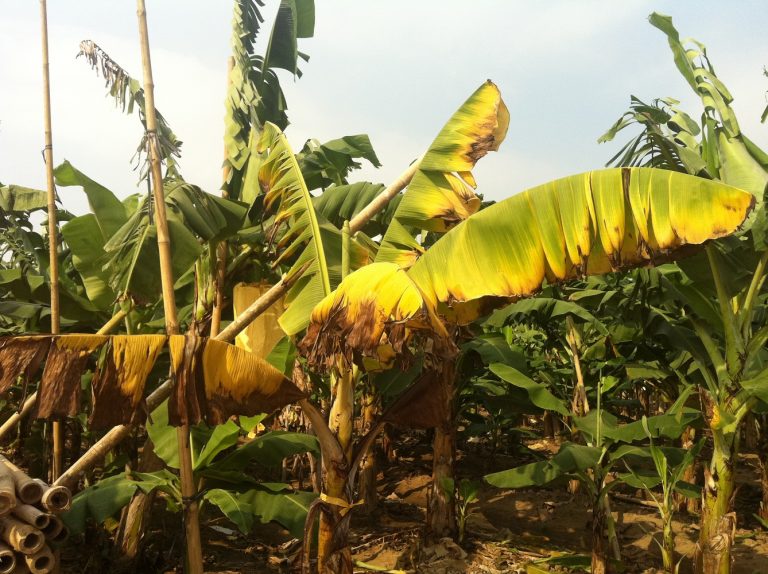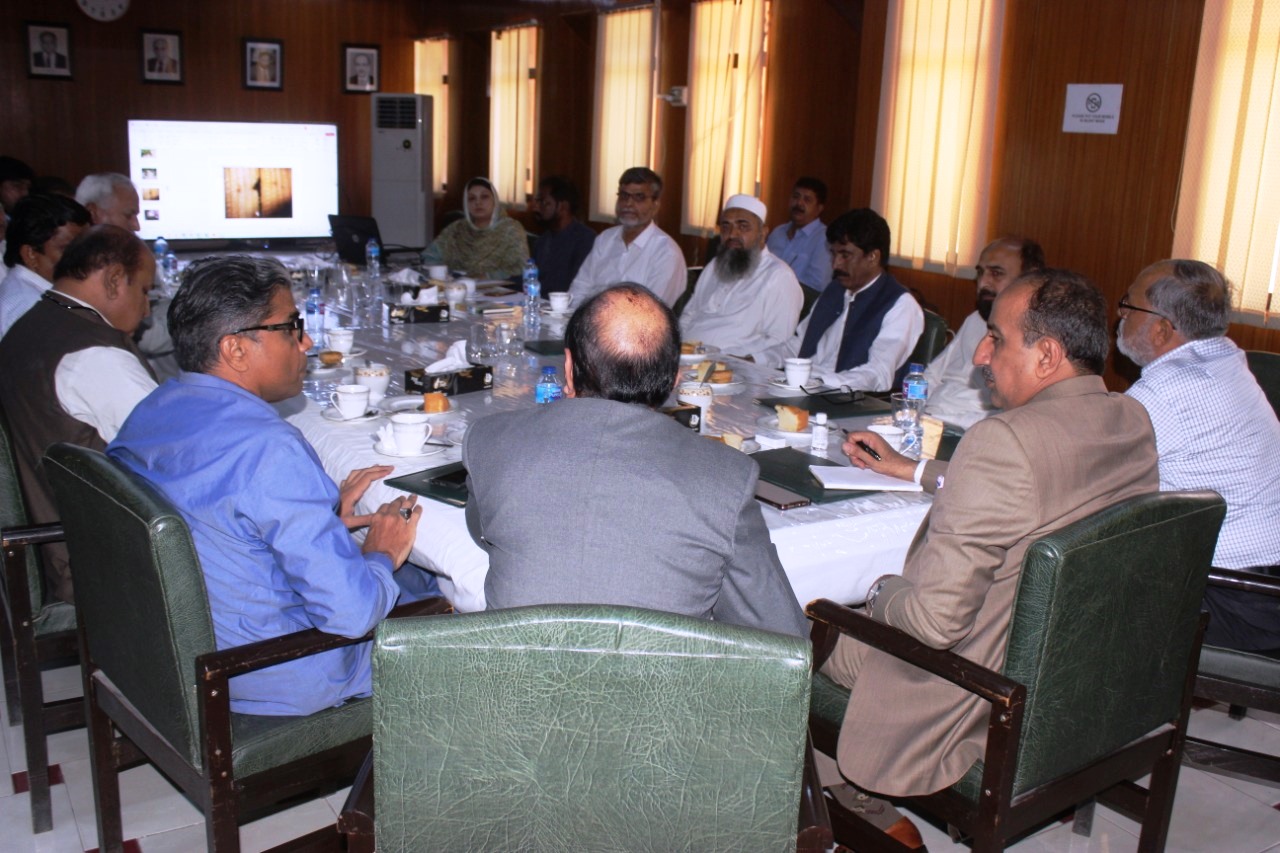
The imported agricultural varieties must be quarantined before allowing plantation – Sindh Agriculture University holds emergency meeting to discuss the situation.
Tando Jam
Agriculture experts, academicians, representatives of research institutes and progressive growers have expressed concern over the ‘Panama Fusarium Wilt’ attack on the banana crop in Sindh and suggested training the farmers and taking precautionary measures to protect crops from disease.
The also recommended the government of Sindh to take practical steps to prevent such diseases from entering the country through agricultural commodities from other countries, and urged that the agricultural varieties must be quarantined before planting such commodities.
An important meeting of all stakeholders in this regard was held at Sindh Agriculture University committee room and was presided by Dr. Fateh Marri, Vice Chancellor. The meeting was addressed by Prof. Dr. Rehana Naz Syed of Sindh Agricultural University, Khalid Rajput, an expert in Agriculture Research Sindh, and Ph.D. Scholar, Naimatullah Koondhar who spoke on various aspects of the banana crop and gave a detailed briefing on disease surveys, research, and statistics of disease-affected areas in banana growing districts.
 Dr. Fateh Marri said that Sindh is the 87% banana-producing province of Pakistan but ‘Panama Fusarium Wilt’ is proving to be as dangerous as Bunchy-top virus for bananas. “Seasonal effects have also damaged banana production capacity,” he said and urged that experts must advise farmers to prevent or eliminate the effects of the disease. He also suggested that a forum of all stakeholders including agricultural institutions, experts, and farmers of Sindh should be formed to address these issues.
Dr. Fateh Marri said that Sindh is the 87% banana-producing province of Pakistan but ‘Panama Fusarium Wilt’ is proving to be as dangerous as Bunchy-top virus for bananas. “Seasonal effects have also damaged banana production capacity,” he said and urged that experts must advise farmers to prevent or eliminate the effects of the disease. He also suggested that a forum of all stakeholders including agricultural institutions, experts, and farmers of Sindh should be formed to address these issues.
Mr. Fayyaz Ahmed, who is associated with the private sector and food industry, said that to save bananas, new resistant commodities have to be introduced for the development of the food industry. “The private sector will cooperate with Sindh Agriculture University,” he assured.
Mahmood Nawaz Shah of Sindh Aabadgar Board (SAB) said that such diseases were spreading in the province due to non-quarantine and non-diagnosis of agricultural commodities coming from abroad. “The Sindh government will have to take steps to prevent this,” he urged.
Syed Nadeem Shah, a progressive grower said that in case of risk of disease, a modern laboratory should be established for early diagnosis and farmers should be made aware of the disease, in areas where the disease is severe, precautionary measures need to be taken.
Agriculture Expert Prof. Muhammad Mithal Jaskani said that tissue cultured plants are free from diseases but in ‘Panama Fusarium Wilt’ affected areas, the tissue culture plants can also be affected by the disease, therefore it is necessary to develop immune plants and commodities.
Prof. Dr. Abdul Mubeen Lodhi, Director of Advanced Studies, said that the disease was causing rapid destruction of bananas, adding that emergency measures were needed to eradicate the affected plants and protect existing orchards; it also requires government cooperation with research institutes.
Dr. Muhammad Ismail Kumbhar, Director, University of Advancement and Financial Assistance, Dr. Mehboob Siyal, Director, Nuclear Institute of Agriculture, Dr. Raza Memon and Dr. Javed Asghar, Prof. Dr. Manzoor Ali Abro, Prof. Dr. Muhammad Ibrahim Khaskheli, Jammuon Mal, Manager Asim Agriculture Farm were also present. (PR)
________________